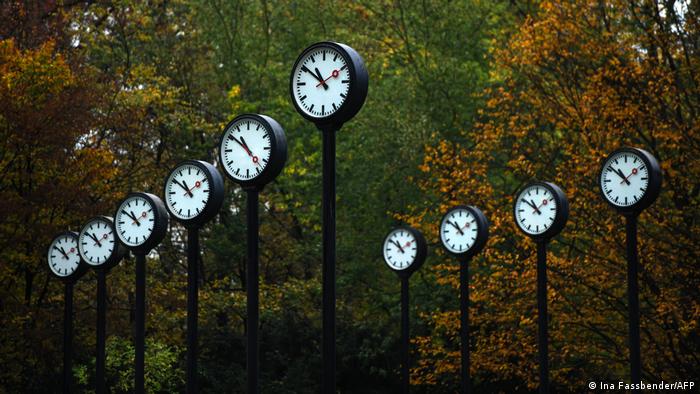Clocks in Europe going back an hour for daylight saving

European countries move to winter time this weekend, with 3am on Sunday, October 31st, marking the moment when clocks go back by one hour, giving most people an extra lie-in on Sunday morning.
Every year, the clocks change on the last weekend in March and October.
They went forward an hour on March 28 and will go forward again in March next year.
As a result of this time change, the time interval between Bangladesh with France, Germany, Spain, Portugal, Italy, Belgium and some European countries will be 5 hours.
Following summer solstice on June 21, the days gradually become shorter.
By turning the clocks back an hour during autumn, this provides people with more sunlight in the morning. Turning the clocks forward in the spring brings lighter evenings
In place in the EU since 1976, the twice-yearly changing of the clocks has been controversial for some time and in 2019 lawmakers in the European Parliament voted by a large majority – 410 MEPs against 192 – in favour of stopping the changing of the hour from 2021.
However, following the vote, Parliament specified that each EU member state would decide whether they would keep summer time or winter time.
In a Europe-wide survey in 2018 some 80 percent of Europeans voted in favour of stopping the clock changes, with most people appearing to prefer to stay on summer time rather than winter time.
Countries overwhelmingly in favour of scrapping the hour change include France and northern European countries, but Italy has filed a formal request that the current system be kept in place.
This is because in southern countries such as Italy or Spain daylight savings actually lengthens the days – and helps people save on their energy bills – while in northern Europe the change doesn’t bring any such benefits, according to Italian media.
The 2021 European deadline for changes however was derailed by Covid which disrupted the normal parliamentary timetables in most countries.
And as normal political life resumes a further problem has emerged – although EU countries agree on scrapping the hour change, they cannot agree on whether to stick with summer or winter time.
There have been suggestions that the continent could be divided into blocs – with countries like Italy which favour daylight saving time allowed to keep it, and others scrapping the system.
But having many different EU countries in different time zones would create all sorts of practical problems for business and trade, not to mention the substantial number of cross-border workers who live in one EU country and work in another.





